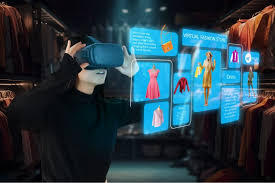The future of marketing is no longer just about ads and promotions—it’s about creating memorable, interactive experiences that engage consumers on a deeper level. Traditional marketing approaches have evolved into immersive and experiential marketing strategies, where customers don’t just see an advertisement but actively engage with a brand’s story.
At the forefront of this transformation is augmented reality (AR), a technology that blends digital content with real-world experiences to create highly interactive and engaging brand interactions. Alongside AR, virtual reality (VR), artificial intelligence (AI), and digital marketing are shaping the next era of experiential brand engagement.
In this article, we’ll explore how AR and immersive technology are transforming experiential marketing, highlight key trends that will define its future, and discuss how Towerhouse Global can help brands create cutting-edge, immersive marketing campaigns that captivate audiences and drive engagement.
1. What is Immersive & Experiential Marketing?
Defining Immersive Marketing
Immersive marketing blurs the lines between the physical and digital worlds by incorporating technologies such as AR, VR, mixed reality (MR), AI, and interactive storytelling. These experiences allow consumers to step inside a brand’s world rather than just observe it, making marketing more engaging and memorable.
📌Key Elements of Immersive Marketing:
✔Augmented Reality (AR) – Enhances real-world environments with interactive digital content.
✔Virtual Reality (VR) – Creates fully immersive brand experiences where users can interact in a virtual world.
✔Mixed Reality (MR) – Blends AR and VR, allowing real and digital elements to interact seamlessly.
✔AI-Powered Personalization – Uses data-driven insights to tailor experiences to individual consumers.
How Experiential Marketing Enhances Brand Engagement
Experiential marketing goes beyond traditional advertising by creating interactive, real-world experiences that allow customers to physically or digitally engage with a brand. Whether it’s a live brand activation, AR-powered product demo, or virtual showroom, experiential marketing makes brand interactions more impactful and memorable.
✔Why Experiential Marketing is the Future:
✅Turns passive consumers into active participants.
✅Creates emotional connections that drive long-term brand loyalty.
✅Encourages social sharing, increasing organic reach.
✅Increases conversion rates by providing hands-on product experiences.
How Towerhouse Global Can Help:
We create immersive brand experiences using AR, VR, and digital engagement strategies, helping brands connect with audiences in exciting and innovative ways.
2. The Role of Augmented Reality in the Future of Marketing
- AR Transforms Consumer Experiences
📌Why It Matters:
- Augmented reality (AR) enables customers to visualize products in real-time, interact with digital content, and engage with brands in ways never before possible.
- AR-powered experiential marketing turns advertisements into interactive experiences that captivate and engage.
📌Example:
- Sephora Virtual Artist – Uses AR technology to allow customers to try on makeup virtually before purchasing.
✔Why This Works:
✅Reduces uncertainty in online shopping.
✅Increases user engagement and brand interaction.
✅Encourages social media sharing.
- AR-Enabled Live Events & Brand Activations
📌Why It Matters:
- AR is changing how brands engage with audiences at live events and trade shows.
- AR-powered activations create interactive and gamified experiences that encourage participation.
📌Example:
- Pepsi Max’s AR Bus Stop Ad – Pepsi installed AR screens at bus stops, making it appear as if tigers, aliens, and other surprises were appearing in real life.
✔Why This Works:
✅Creates a viral marketing moment.
✅Turns everyday spaces into engaging brand experiences.
✅Generates user-generated content (UGC) for digital marketing campaigns.
How Towerhouse Global Helps:
We develop AR-powered live event experiences that turn brand activations into memorable, shareable moments.
3. Virtual Reality & AI-Powered Marketing
- The Rise of Virtual Reality in Experiential Marketing
📌Why It Matters:
- VR creates fully immersive brand experiences, allowing consumers to interact with products and environments in a digital space.
- Brands can use VR for virtual showrooms, interactive storytelling, and immersive training experiences.
📌Example:
- Audi VR Showroom – Allows customers to explore and customize cars in a virtual environment before making a purchase.
✔Why This Works:
✅Enhances online shopping with immersive experiences.
✅Bridges the gap between physical and digital retail.
✅Creates stronger emotional connections with consumers.
- AI-Powered Personalization in Experiential Marketing
📌Why It Matters:
- Artificial intelligence (AI) helps brands tailor experiential marketing experiences to individual consumers.
- AI can analyze customer data and behavior to provide hyper-personalized product recommendations.
📌Example:
- Amazon’s AI-Driven AR Shopping Tool – Uses AI and AR to suggest personalized products based on user preferences.
✔Why This Works:
✅Increases customer satisfaction by providing personalized shopping experiences.
✅Drives higher conversion rates by improving relevance.
✅Enhances digital marketing strategies by using data-driven insights.
How Towerhouse Global Helps:
We integrate AI-powered personalization and AR activations to create highly engaging, data-driven experiential marketing campaigns.
4. The Future of Experiential Marketing: What’s Next?
📌Emerging Trends in Immersive Marketing:
✔AR-Powered Shopping & Virtual Try-Ons – Enhancing e-commerce with interactive product visualization.
✔Metaverse & Virtual Brand Activations – Expanding experiential marketing into fully digital spaces.
✔Holographic & 3D Brand Experiences – Using 3D projections and interactive displays for engagement.
✔AI-Powered Chatbots & AR Commerce – Improving customer service and shopping with interactive AI assistants.
📌Example:
- Nike’s AR Gamification Campaign – Uses AR scavenger hunts to engage customers and drive store traffic.
✔Why This Matters:
✅Brands that embrace AR & immersive marketing will lead the industry.
✅Interactive experiences increase consumer engagement and brand loyalty.
✅Combining AI, AR, and VR will redefine the customer journey.
5. How Towerhouse Global Can Help Brands Implement AR & Experiential Marketing
📌Our AR & VR Marketing Services:
✔Custom AR Brand Activations – From AR-powered product demos to interactive live events.
✔VR Event & Trade Show Experiences – Transform in-person events into immersive digital activations.
✔AI-Powered Personalization & AR Commerce – Integrating AI to enhance customer experience and engagement.
✔Social Media AR Filters – Creating branded Instagram, TikTok, and Snapchat filters to drive engagement.
📩Contact Towerhouse Global today to develop a high-impact AR experiential marketing campaign that captivates audiences and transforms brand engagement! 🚀
Final Thoughts: The Future of Marketing is Immersive
✔Augmented reality and virtual reality transform brand engagement from passive to interactive.
✔AI-powered personalization enhances digital marketing campaigns.
✔Brands that invest in immersive marketing will lead the future of customer engagement.
At Towerhouse Global, we specialize in:
✅Developing AR & VR-powered brand activations that captivate audiences.
✅Creating immersive experiential marketing campaigns.
✅Helping brands lead the next era of digital marketing.
📩Ready to future-proof your marketing? Contact Towerhouse Global today! 🚀





